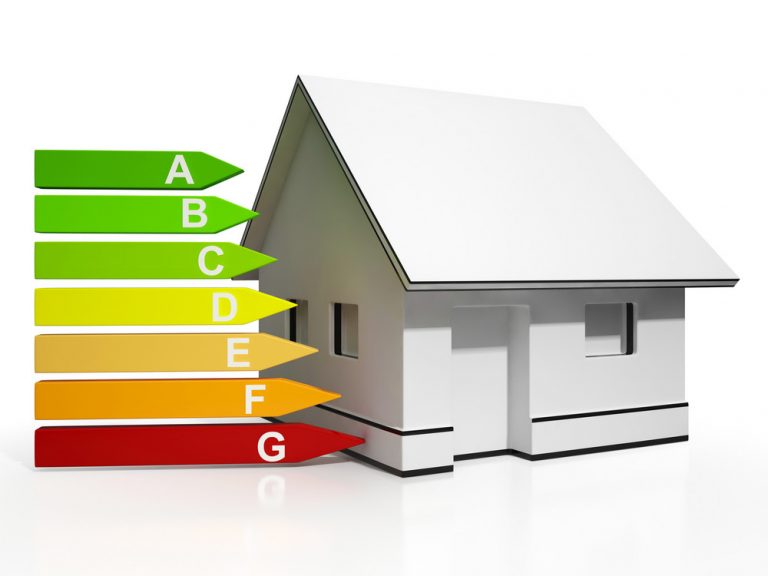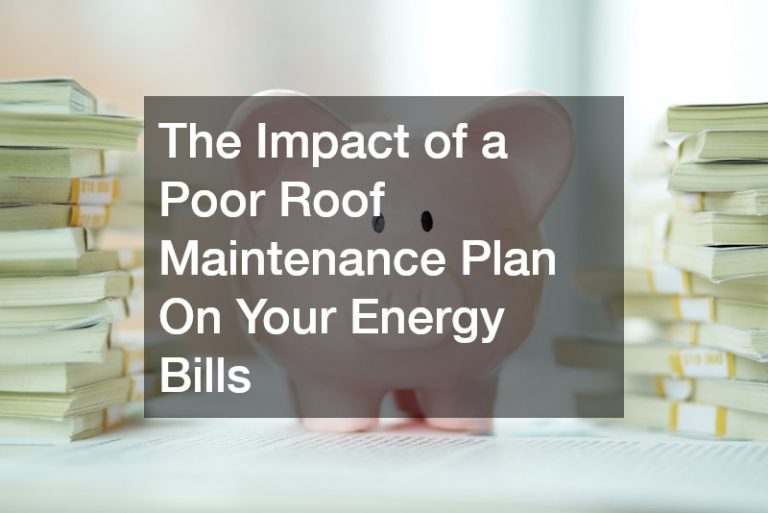Considering Energy Efficiency
Urban renovations offer a unique opportunity to transform existing spaces while simultaneously addressing energy efficiency. With the rising cost of energy and growing concerns over environmental impact, many urban homeowners and property managers are seeking solutions that not only enhance the aesthetic appeal of their buildings but also decrease energy consumption. By incorporating energy-saving technologies and sustainable building practices, these renovations can play a vital role in reducing the overall carbon footprint of urban areas. From improving insulation to upgrading lighting systems, numerous strategies can make a significant difference in how efficiently a building uses energy. Additionally, modern urban renovations can also increase the property’s value and appeal, making them a smart investment for the future.
Implementing Energy-Efficient Windows and Doors
One of the most effective urban renovations to decrease energy usage is the installation of energy-efficient windows and doors. These components are crucial in controlling the internal climate of a building, helping to keep heat inside during winter and outside during summer. Older buildings in urban settings often have windows and doors that leak air, leading to excessive energy use as heating and cooling systems work harder to maintain comfortable temperatures. By upgrading to modern, energy-efficient models, property owners can significantly reduce the energy required to heat and cool their spaces. This not only results in lower utility bills but also contributes to a greener environment by reducing overall energy consumption.
For properties that include auxiliary structures like local sheds, applying the same energy-efficient upgrades can further improve overall energy savings. Installing energy-efficient windows and doors on these smaller structures ensures that they remain comfortable year-round, without placing additional strain on the main building’s energy systems. Many local sheds serve as workshops, offices, or storage spaces that can benefit from improved insulation and energy control. By addressing the energy efficiency of all structures on a property, urban renovations can create a more cohesive, environmentally conscious setup that maximizes savings and comfort across the board.
Upgrading to Smart Lighting Systems
Another essential urban renovation for reducing energy usage is upgrading to smart lighting systems. Traditional lighting can be a significant source of energy waste, especially when lights are left on unnecessarily. Smart lighting systems are designed to address this issue by incorporating sensors, timers, and automated controls that adjust lighting based on occupancy, daylight availability, and specific user preferences. By installing smart lighting, urban properties can effectively reduce energy consumption by ensuring lights are only used when needed. Additionally, smart systems can be integrated with other energy-efficient technologies, creating a seamless, automated environment that further enhances sustainability.
Urban properties can achieve substantial savings by working with professionals who specialize in electrical installation to ensure that smart lighting systems are properly set up. Expert installation is crucial to making sure that the system functions efficiently and integrates smoothly with other energy-saving features. For example, installing motion sensors in common areas like hallways or stairwells can prevent energy waste, while dimming features in rooms that receive natural light can adjust lighting levels based on the time of day. Proper electrical installation ensures that these systems are reliable, easy to manage, and effective in contributing to the overall goal of urban renovations—creating energy-efficient, sustainable living and working spaces.
Enhancing Insulation for Improved Efficiency
One of the fundamental aspects of urban renovations aimed at reducing energy usage is enhancing insulation. Proper insulation ensures that a building retains heat during colder months and stays cool during the summer, significantly reducing the need for excessive heating and cooling. In many older urban buildings, insulation may be outdated, poorly installed, or even nonexistent, leading to higher energy consumption and increased costs. Upgrading insulation, particularly in walls, attics, and basements, can drastically improve a building’s energy efficiency. This simple yet effective renovation helps maintain a consistent indoor temperature, making living and working spaces more comfortable and environmentally friendly.
For insulation improvements, partnering with professional drywall companies can ensure high-quality results that effectively contribute to energy conservation. These experts can assess the current insulation levels, identify problem areas, and install modern, energy-efficient insulation materials that align with the specific needs of the building. For example, using advanced insulation solutions like spray foam or rigid foam board can offer superior thermal performance and long-lasting benefits.
Installing Solar Panels for Renewable Energy
Installing solar panels is a powerful way to make urban renovations that decrease energy usage while also promoting renewable energy. Solar panels convert sunlight into electricity, reducing dependence on traditional, fossil fuel-based power sources. This can be particularly beneficial in urban areas, where high energy demands and costs are common. Solar panels not only cut energy bills significantly but also contribute to a greener city by lowering carbon emissions. With advances in technology, modern solar panels are now more efficient, durable, and affordable, making them a viable option for many property owners seeking sustainable solutions.
Working with professional roofing services is essential for the proper installation of solar panels as part of an urban renovation project. Roofing experts can ensure that the roof structure can support the added weight of the panels and that they are positioned correctly for maximum sunlight exposure. Additionally, they can provide maintenance services to keep the panels in optimal working condition.
Utilizing Green Roofing Materials
Green roofing materials are another excellent option for urban renovations aimed at reducing energy consumption. Traditional roofing materials can absorb and retain heat, leading to increased temperatures inside the building and higher energy costs for cooling. Green roofing solutions, such as cool roofs, vegetative roofs, and reflective coatings, help to mitigate this issue by reflecting more sunlight and absorbing less heat. These materials also offer additional benefits, including improved air quality, extended roof lifespan, and better stormwater management. By reducing the heat absorbed by a building, green roofing materials contribute to lower energy usage and a more sustainable urban environment.
To maximize the benefits of green roofing materials, it’s important to collaborate with a waterproofing service to ensure that the roof remains leak-proof and durable. Waterproofing is a critical component of green roofing, as it protects the building structure from water damage while supporting the growth of vegetation or the application of reflective coatings. Professionals can provide effective waterproofing solutions that complement green roofing systems, making urban renovations more resilient and energy-efficient.
Adopting Energy-Saving HVAC Systems
Energy-saving HVAC (Heating, Ventilation, and Air Conditioning) systems are a key component of urban renovations aimed at reducing energy usage. Traditional HVAC units often consume a significant amount of energy, especially in older urban buildings where the systems may be outdated or inefficient. By upgrading to modern, energy-efficient HVAC systems, property owners can reduce their energy consumption while maintaining optimal indoor climate control. These newer systems are designed to use less power, adjust settings automatically, and even integrate with smart home technologies for greater efficiency. As a result, adopting energy-saving HVAC systems not only helps to lower utility bills but also reduces the building’s overall environmental footprint.
Working with a plumbing professional is essential when upgrading HVAC systems, as these experts can ensure proper installation and maintenance, which is critical for maximizing energy efficiency. For instance, they can inspect and adjust ductwork, improve water heating systems, and install energy-efficient air conditioners and heaters that require less energy to operate. Additionally, plumbing professionals can offer advice on integrating HVAC systems with existing plumbing and electrical setups, helping to streamline the urban renovation process.
Integrating Smart Home Automation
Integrating smart home automation is an innovative approach to urban renovations that can greatly reduce energy usage. Smart home systems allow property owners to control various aspects of their building’s environment, including lighting, heating, cooling, and even appliances, through automated settings or remote access. This means that energy use can be optimized based on real-time needs, such as automatically turning off lights when no one is in a room or adjusting the thermostat when the building is unoccupied. By making energy management more intuitive and efficient, smart home automation systems play a vital role in creating energy-efficient urban spaces.
Home renovation projects that include smart home automation require careful planning and the expertise of professionals who understand the complexities of these systems. A well-executed home renovation that integrates smart technologies can offer seamless control over energy consumption, enabling homeowners to set schedules, monitor energy use, and make adjustments remotely via smartphone apps.
Optimizing Water Heating Solutions
Optimizing water heating solutions is another effective strategy for urban renovations focused on decreasing energy usage. Water heating accounts for a large portion of energy consumption in residential and commercial buildings, particularly when using traditional water heaters that continuously keep water hot. Upgrading to more efficient systems, such as tankless water heaters or heat pump water heaters, can drastically cut energy use by heating water on demand or utilizing energy-efficient technology. These systems ensure that water is only heated when necessary, which can lead to significant cost savings and a reduction in energy waste over time.
Trim manufacturers play an important role in this process by providing high-quality components that ensure the proper insulation and sealing of water heating systems. Effective trim and seals are essential for minimizing heat loss, which helps maintain the efficiency of water heaters. Additionally, well-insulated pipes and fittings can prevent unnecessary energy loss, ensuring that the heated water retains its temperature as it travels through the plumbing system.
Designing Spaces for Natural Light Use
One of the most sustainable strategies for urban renovations is designing spaces that maximize the use of natural light. By allowing more daylight into a building, property owners can reduce the need for artificial lighting during daytime hours, which significantly lowers energy consumption. This can be achieved through various design techniques, such as installing larger windows, adding skylights, or using glass doors and reflective surfaces to brighten interior spaces. Urban renovations that focus on harnessing natural light not only reduce energy usage but also create healthier, more inviting environments. Increased exposure to natural light has been shown to improve mood, productivity, and overall well-being, making it a valuable feature for both residential and commercial properties.
Incorporating soft washing service as part of the renovation process can further enhance the benefits of natural light. Over time, dirt, grime, and mold can accumulate on windows, reducing the amount of light that enters the building. Regular soft washing helps maintain the cleanliness and transparency of windows, ensuring that they continue to let in as much natural light as possible.
Reducing Energy Loss Through Structural Improvements
Reducing energy loss is a critical aspect of urban renovations designed to decrease energy consumption. Energy can escape through various parts of a building’s structure, including walls, windows, doors, and even the foundation, leading to increased heating and cooling demands. Structural improvements, such as reinforcing walls, sealing cracks, and adding insulation, help to minimize energy loss and improve a building’s overall efficiency. For urban properties, these renovations are especially important, as they can reduce the energy required to maintain comfortable indoor temperatures throughout the year. By addressing structural weaknesses, property owners can enhance energy efficiency, reduce utility costs, and create more sustainable living or working spaces.
A fencing contractor can contribute to these efforts by providing solutions that complement the building’s structural improvements. Installing energy-efficient fencing or barriers around the property can help protect against wind and external temperature fluctuations, reducing the impact on the building’s heating and cooling systems. Additionally, proper fencing can create sheltered outdoor areas that are more comfortable and require less energy to maintain.
Maintaining New Energy Changes
Urban renovations offer a practical and effective way to reduce energy usage in cities where buildings are often older and less efficient. By implementing strategies such as installing energy-efficient windows, upgrading insulation, integrating smart home technologies, and adopting green building materials, property owners can significantly decrease their energy consumption while enhancing the comfort and value of their spaces. These renovations are not only about saving money on utility bills; they are also about creating a more sustainable and eco-friendly urban environment. Modern urban renovations reflect a growing awareness of environmental responsibility and the need for energy conservation, making them an essential part of any long-term urban planning strategy.
Considering Energy Efficiency
Urban renovations offer a unique opportunity to transform existing spaces while simultaneously addressing energy efficiency. With the rising cost of energy and growing concerns over environmental impact, many urban homeowners and property managers are seeking solutions that not only enhance the aesthetic appeal of their buildings but also decrease energy consumption. By incorporating energy-saving technologies and sustainable building practices, these renovations can play a vital role in reducing the overall carbon footprint of urban areas. From improving insulation to upgrading lighting systems, numerous strategies can make a significant difference in how efficiently a building uses energy. Additionally, modern urban renovations can also increase the property’s value and appeal, making it a smart investment for the future.
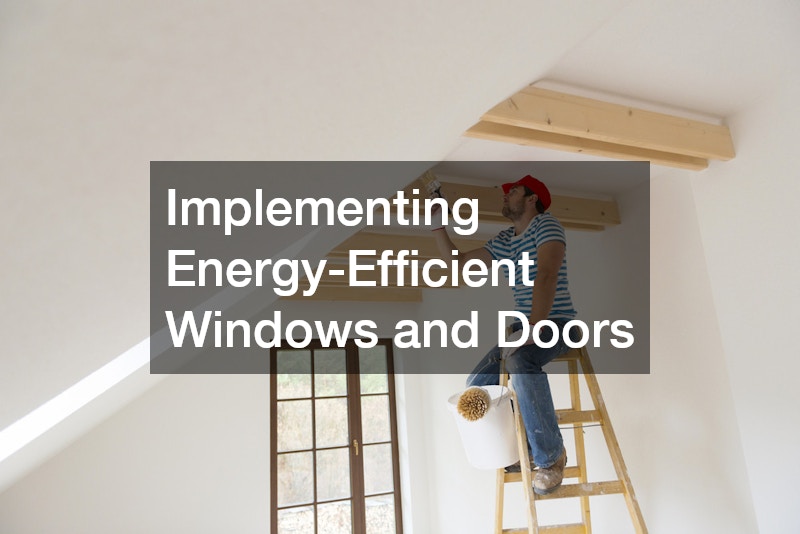
Implementing Energy-Efficient Windows and Doors
One of the most effective urban renovations to decrease energy usage is the installation of energy-efficient windows and doors. These components are crucial in controlling the internal climate of a building, helping to keep heat inside during winter and outside during summer. Older buildings in urban settings often have windows and doors that leak air, leading to excessive energy use as heating and cooling systems work harder to maintain comfortable temperatures. By upgrading to modern, energy-efficient models, property owners can significantly reduce the energy required to heat and cool their spaces. This not only results in lower utility bills but also contributes to a greener environment by reducing overall energy consumption.
For properties that include auxiliary structures like local sheds, applying the same energy-efficient upgrades can further improve overall energy savings. Installing energy-efficient windows and doors on these smaller structures ensures that they remain comfortable year-round, without placing additional strain on the main building’s energy systems. Many local sheds serve as workshops, offices, or storage spaces that can benefit from improved insulation and energy control. By addressing the energy efficiency of all structures on a property, urban renovations can create a more cohesive, environmentally conscious setup that maximizes savings and comfort across the board.
Upgrading to Smart Lighting Systems
Another essential urban renovation for reducing energy usage is upgrading to smart lighting systems. Traditional lighting can be a significant source of energy waste, especially when lights are left on unnecessarily. Smart lighting systems are designed to address this issue by incorporating sensors, timers, and automated controls that adjust lighting based on occupancy, daylight availability, and specific user preferences. By installing smart lighting, urban properties can effectively reduce energy consumption by ensuring lights are only used when needed. Additionally, smart systems can be integrated with other energy-efficient technologies, creating a seamless, automated environment that further enhances sustainability.
Urban properties can achieve substantial savings by working with professionals who specialize in electrical installation to ensure that smart lighting systems are properly set up. Expert installation is crucial to making sure that the system functions efficiently and integrates smoothly with other energy-saving features. For example, installing motion sensors in common areas like hallways or stairwells can prevent energy waste, while dimming features in rooms that receive natural light can adjust lighting levels based on the time of day. Proper electrical installation ensures that these systems are reliable, easy to manage, and effective in contributing to the overall goal of urban renovations—creating energy-efficient, sustainable living and working spaces.
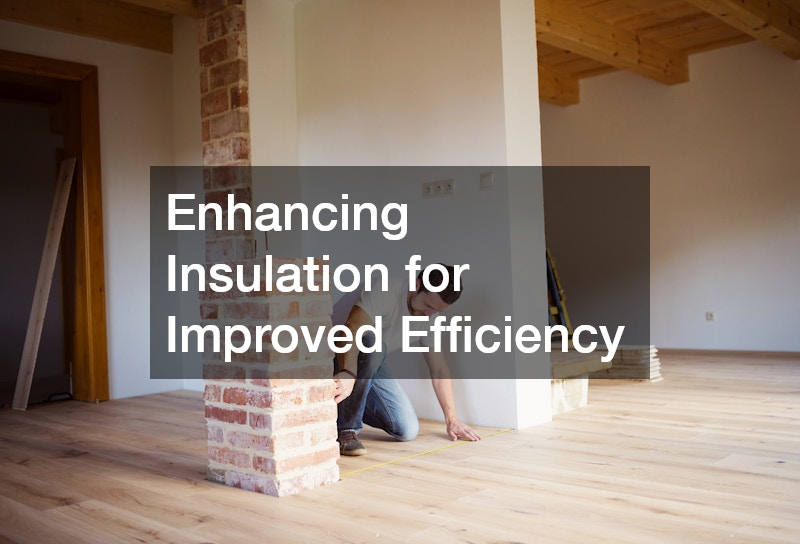
Enhancing Insulation for Improved Efficiency
One of the fundamental aspects of urban renovations aimed at reducing energy usage is enhancing insulation. Proper insulation ensures that a building retains heat during colder months and stays cool during the summer, significantly reducing the need for excessive heating and cooling. In many older urban buildings, insulation may be outdated, poorly installed, or even nonexistent, leading to higher energy consumption and increased costs. Upgrading insulation, particularly in walls, attics, and basements, can drastically improve a building’s energy efficiency. This simple yet effective renovation helps maintain a consistent indoor temperature, making living and working spaces more comfortable and environmentally friendly.
For insulation improvements, partnering with professional drywall companies can ensure high-quality results that effectively contribute to energy conservation. These experts can assess the current insulation levels, identify problem areas, and install modern, energy-efficient insulation materials that align with the specific needs of the building. For example, using advanced insulation solutions like spray foam or rigid foam board can offer superior thermal performance and long-lasting benefits.
Installing Solar Panels for Renewable Energy
Installing solar panels is a powerful way to make urban renovations that decrease energy usage while also promoting renewable energy. Solar panels convert sunlight into electricity, reducing dependence on traditional, fossil fuel-based power sources. This can be particularly beneficial in urban areas, where high energy demands and costs are common. Solar panels not only cut energy bills significantly but also contribute to a greener city by lowering carbon emissions. With advances in technology, modern solar panels are now more efficient, durable, and affordable, making them a viable option for many property owners seeking sustainable solutions.
Working with professional roofing services is essential for the proper installation of solar panels as part of an urban renovation project. Roofing experts can ensure that the roof structure can support the added weight of the panels and that they are positioned correctly for maximum sunlight exposure. Additionally, they can provide maintenance services to keep the panels in optimal working condition.
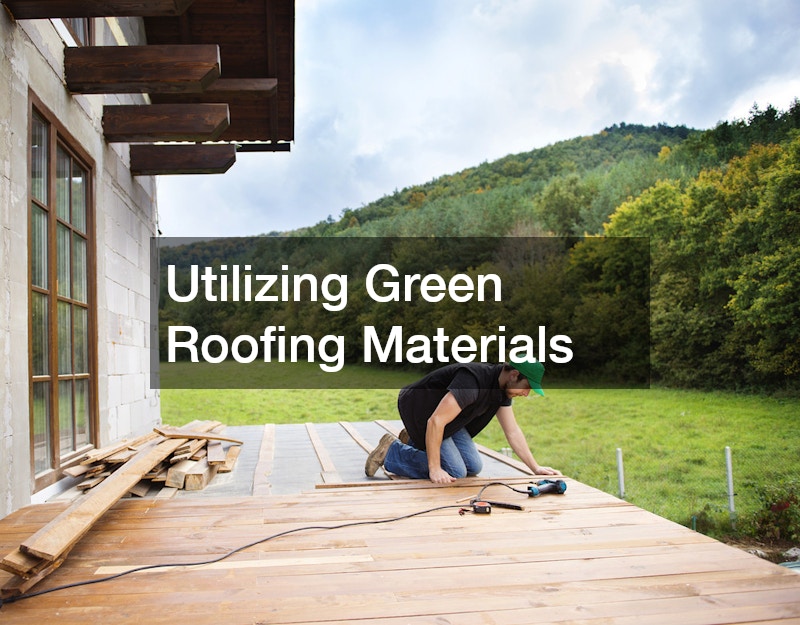
Utilizing Green Roofing Materials
Green roofing materials are another excellent option for urban renovations aimed at reducing energy consumption. Traditional roofing materials can absorb and retain heat, leading to increased temperatures inside the building and higher energy costs for cooling. Green roofing solutions, such as cool roofs, vegetative roofs, and reflective coatings, help to mitigate this issue by reflecting more sunlight and absorbing less heat. These materials also offer additional benefits, including improved air quality, extended roof lifespan, and better stormwater management. By reducing the heat absorbed by a building, green roofing materials contribute to lower energy usage and a more sustainable urban environment.
To maximize the benefits of green roofing materials, it’s important to collaborate with a waterproofing service to ensure that the roof remains leak-proof and durable. Waterproofing is a critical component of green roofing, as it protects the building structure from water damage while supporting the growth of vegetation or the application of reflective coatings. Professionals can provide effective waterproofing solutions that complement green roofing systems, making urban renovations more resilient and energy-efficient.
Adopting Energy-Saving HVAC Systems
Energy-saving HVAC (Heating, Ventilation, and Air Conditioning) systems are a key component of urban renovations aimed at reducing energy usage. Traditional HVAC units often consume a significant amount of energy, especially in older urban buildings where the systems may be outdated or inefficient. By upgrading to modern, energy-efficient HVAC systems, property owners can reduce their energy consumption while maintaining optimal indoor climate control. These newer systems are designed to use less power, adjust settings automatically, and even integrate with smart home technologies for greater efficiency. As a result, adopting energy-saving HVAC systems not only helps to lower utility bills but also reduces the building’s overall environmental footprint.
Working with a plumbing professional is essential when upgrading HVAC systems, as these experts can ensure proper installation and maintenance, which is critical for maximizing energy efficiency. For instance, they can inspect and adjust ductwork, improve water heating systems, and install energy-efficient air conditioners and heaters that require less energy to operate. Additionally, plumbing professionals can offer advice on integrating HVAC systems with existing plumbing and electrical setups, helping to streamline the urban renovation process.

Integrating Smart Home Automation
Integrating smart home automation is an innovative approach to urban renovations that can greatly reduce energy usage. Smart home systems allow property owners to control various aspects of their building’s environment, including lighting, heating, cooling, and even appliances, through automated settings or remote access. This means that energy use can be optimized based on real-time needs, such as automatically turning off lights when no one is in a room or adjusting the thermostat when the building is unoccupied. By making energy management more intuitive and efficient, smart home automation systems play a vital role in creating energy-efficient urban spaces.
Home renovation projects that include smart home automation require careful planning and the expertise of professionals who understand the complexities of these systems. A well-executed home renovation that integrates smart technologies can offer seamless control over energy consumption, enabling homeowners to set schedules, monitor energy use, and make adjustments remotely via smartphone apps.
Optimizing Water Heating Solutions
Optimizing water heating solutions is another effective strategy for urban renovations focused on decreasing energy usage. Water heating accounts for a large portion of energy consumption in residential and commercial buildings, particularly when using traditional water heaters that continuously keep water hot. Upgrading to more efficient systems, such as tankless water heaters or heat pump water heaters, can drastically cut energy use by heating water on demand or utilizing energy-efficient technology. These systems ensure that water is only heated when necessary, which can lead to significant cost savings and a reduction in energy waste over time.
Trim manufacturers play an important role in this process by providing high-quality components that ensure the proper insulation and sealing of water heating systems. Effective trim and seals are essential for minimizing heat loss, which helps maintain the efficiency of water heaters. Additionally, well-insulated pipes and fittings can prevent unnecessary energy loss, ensuring that the heated water retains its temperature as it travels through the plumbing system.
Designing Spaces for Natural Light Use
One of the most sustainable strategies for urban renovations is designing spaces that maximize the use of natural light. By allowing more daylight into a building, property owners can reduce the need for artificial lighting during daytime hours, which significantly lowers energy consumption. This can be achieved through various design techniques, such as installing larger windows, adding skylights, or using glass doors and reflective surfaces to brighten interior spaces. Urban renovations that focus on harnessing natural light not only reduce energy usage but also create healthier, more inviting environments. Increased exposure to natural light has been shown to improve mood, productivity, and overall well-being, making it a valuable feature for both residential and commercial properties.
Incorporating soft washing service as part of the renovation process can further enhance the benefits of natural light. Over time, dirt, grime, and mold can accumulate on windows, reducing the amount of light that enters the building. Regular soft washing helps maintain the cleanliness and transparency of windows, ensuring that they continue to let in as much natural light as possible.
Reducing Energy Loss Through Structural Improvements
Reducing energy loss is a critical aspect of urban renovations designed to decrease energy consumption. Energy can escape through various parts of a building’s structure, including walls, windows, doors, and even the foundation, leading to increased heating and cooling demands. Structural improvements, such as reinforcing walls, sealing cracks, and adding insulation, help to minimize energy loss and improve a building’s overall efficiency. For urban properties, these renovations are especially important, as they can reduce the energy required to maintain comfortable indoor temperatures throughout the year. By addressing structural weaknesses, property owners can enhance energy efficiency, reduce utility costs, and create more sustainable living or working spaces.
A fencing contractor can contribute to these efforts by providing solutions that complement the building’s structural improvements. Installing energy-efficient fencing or barriers around the property can help protect against wind and external temperature fluctuations, reducing the impact on the building’s heating and cooling systems. Additionally, proper fencing can create sheltered outdoor areas that are more comfortable and require less energy to maintain.
Maintaining New Energy Changes
Urban renovations offer a practical and effective way to reduce energy usage in cities where buildings are often older and less efficient. By implementing strategies such as installing energy-efficient windows, upgrading insulation, integrating smart home technologies, and adopting green building materials, property owners can significantly decrease their energy consumption while enhancing the comfort and value of their spaces. These renovations are not only about saving money on utility bills; they are also about creating a more sustainable and eco-friendly urban environment. Modern urban renovations reflect a growing awareness of environmental responsibility and the need for energy conservation, making them an essential part of any long-term urban planning strategy.

